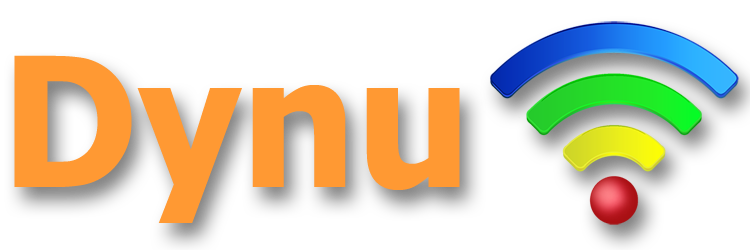If you are shopping for SSL certificates for the first time, trying to find the certificate that best suits your needs
can be challenging. This guide can help you find the perfect certificate to match your needs.
Single domain certificates are some of the most popular certificates that we offer. Single-domain SSL certificates provide security for one single domain name. It can only be used on one specific website. Example: https://www.yourdomain.com.
When generating a single domain certificate for a base domain such as yourdomain.com, the certificate will secure the www version of the domain as well, and vice versa.
Subdomains such as sub.yourdomain.com can use single domain certificates as well. The difference is that your certificate will be issued to the exact domain listed on the certificate request and no additional subdomains (such as sub.yourdomain.com) will be secured.
Wildcard SSL certificates protect unlimited same-level subdomains of a domain. Example: https://www.yourdomain.com, https://mail.yourdomain.com. Wildcard certificates are offered as DV (domain validated) and OV (organization validated). There are no EV (extended validation) Wildcard SSL certificates at this time.
The Wildcard certificate uses a * or asterisk during the generation process. The Common Name in the CSR (Certificate Signing Request) would need to be in the format *.yourdomain.com. A certificate issued out for “*.domain.com” will secure an unlimited amount of sub-domains, such as secure.domain.com, admin.domain.com, www.domain.com, example.domain.com, etc.
 Wildcard certificates can also be issued for second-level subdomains as well.
A certificate generated for *.sub.yourdomain.com will secure an unlimited number of subdomains for sub.yourdomain.com.
Wildcard certificates can also be issued for second-level subdomains as well.
A certificate generated for *.sub.yourdomain.com will secure an unlimited number of subdomains for sub.yourdomain.com.
Multi-Domain and Unified Communications Certificates (UCC) protect multiple fully qualified domain names (yourdomain.com). They are a good solution to the issue of certain server environments not allowing multiple certificates to be installed. Multi-Domain certificates are offered as DV, OV, and EV (extended validation).
Multi-Domain certificates allow you to include up to 250 SANs, or Subject Alternative Names with a single certificate. The domain validation needs to be completed on all the domains included in the SANs before the certificate can be activated.
The list of domains included in the SANs can be viewed by anyone who inspects a site secured with a Multi-Domain Certificate, so this product is not a good option if you do not want the sites to be connected to each other.
Multi-Domain (SAN) Certificates secure up to 250 domains on a single certificate, depending on the vendor. They can secure both fully-qualified domain names and wildcard domains within their SAN entries. When wildcard domains are included on the certificate, unlimited subdomains can be secured for that particular base domain.
The coverage for a Multi-Domain wildcard certificate would look like this:
Common Name: yourdomain.com
SAN 1: *.mail.yourdomain.com
SAN 2: www.anothername.net
SAN 3: *.thirdname.org
SAN 4: yourdomain.us
Multi-Domain (SAN) Certificates can secure unlimited subdomains under multiple domains with one single certificate so it is easy to manage. This also means that if the time comes to alter the information on the certificate (such as adding another domain), all domains must be revalidated before the certificate can be activated again. Multi-Domain (SAN) Certificates are available in DV (Domain Validated) and OV (Organization Validated).
Single Domain Certificates
Single domain certificates are some of the most popular certificates that we offer. Single-domain SSL certificates provide security for one single domain name. It can only be used on one specific website. Example: https://www.yourdomain.com.
When generating a single domain certificate for a base domain such as yourdomain.com, the certificate will secure the www version of the domain as well, and vice versa.
Subdomains such as sub.yourdomain.com can use single domain certificates as well. The difference is that your certificate will be issued to the exact domain listed on the certificate request and no additional subdomains (such as sub.yourdomain.com) will be secured.
Wildcard Certificates
Wildcard SSL certificates protect unlimited same-level subdomains of a domain. Example: https://www.yourdomain.com, https://mail.yourdomain.com. Wildcard certificates are offered as DV (domain validated) and OV (organization validated). There are no EV (extended validation) Wildcard SSL certificates at this time.
The Wildcard certificate uses a * or asterisk during the generation process. The Common Name in the CSR (Certificate Signing Request) would need to be in the format *.yourdomain.com. A certificate issued out for “*.domain.com” will secure an unlimited amount of sub-domains, such as secure.domain.com, admin.domain.com, www.domain.com, example.domain.com, etc.
 Wildcard certificates can also be issued for second-level subdomains as well.
A certificate generated for *.sub.yourdomain.com will secure an unlimited number of subdomains for sub.yourdomain.com.
Wildcard certificates can also be issued for second-level subdomains as well.
A certificate generated for *.sub.yourdomain.com will secure an unlimited number of subdomains for sub.yourdomain.com.
Multi-Domain (SAN) Certificates
Multi-Domain and Unified Communications Certificates (UCC) protect multiple fully qualified domain names (yourdomain.com). They are a good solution to the issue of certain server environments not allowing multiple certificates to be installed. Multi-Domain certificates are offered as DV, OV, and EV (extended validation).
Multi-Domain certificates allow you to include up to 250 SANs, or Subject Alternative Names with a single certificate. The domain validation needs to be completed on all the domains included in the SANs before the certificate can be activated.
The list of domains included in the SANs can be viewed by anyone who inspects a site secured with a Multi-Domain Certificate, so this product is not a good option if you do not want the sites to be connected to each other.
Multi-Domain (SAN) Wildcard Certificates
Multi-Domain (SAN) Certificates secure up to 250 domains on a single certificate, depending on the vendor. They can secure both fully-qualified domain names and wildcard domains within their SAN entries. When wildcard domains are included on the certificate, unlimited subdomains can be secured for that particular base domain.
The coverage for a Multi-Domain wildcard certificate would look like this:
Common Name: yourdomain.com
SAN 1: *.mail.yourdomain.com
SAN 2: www.anothername.net
SAN 3: *.thirdname.org
SAN 4: yourdomain.us
Multi-Domain (SAN) Certificates can secure unlimited subdomains under multiple domains with one single certificate so it is easy to manage. This also means that if the time comes to alter the information on the certificate (such as adding another domain), all domains must be revalidated before the certificate can be activated again. Multi-Domain (SAN) Certificates are available in DV (Domain Validated) and OV (Organization Validated).
